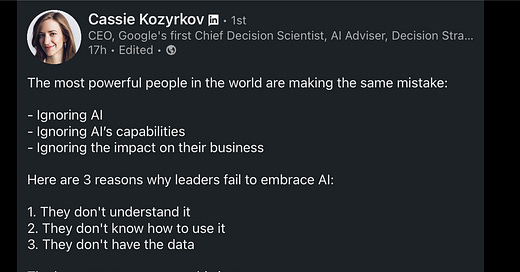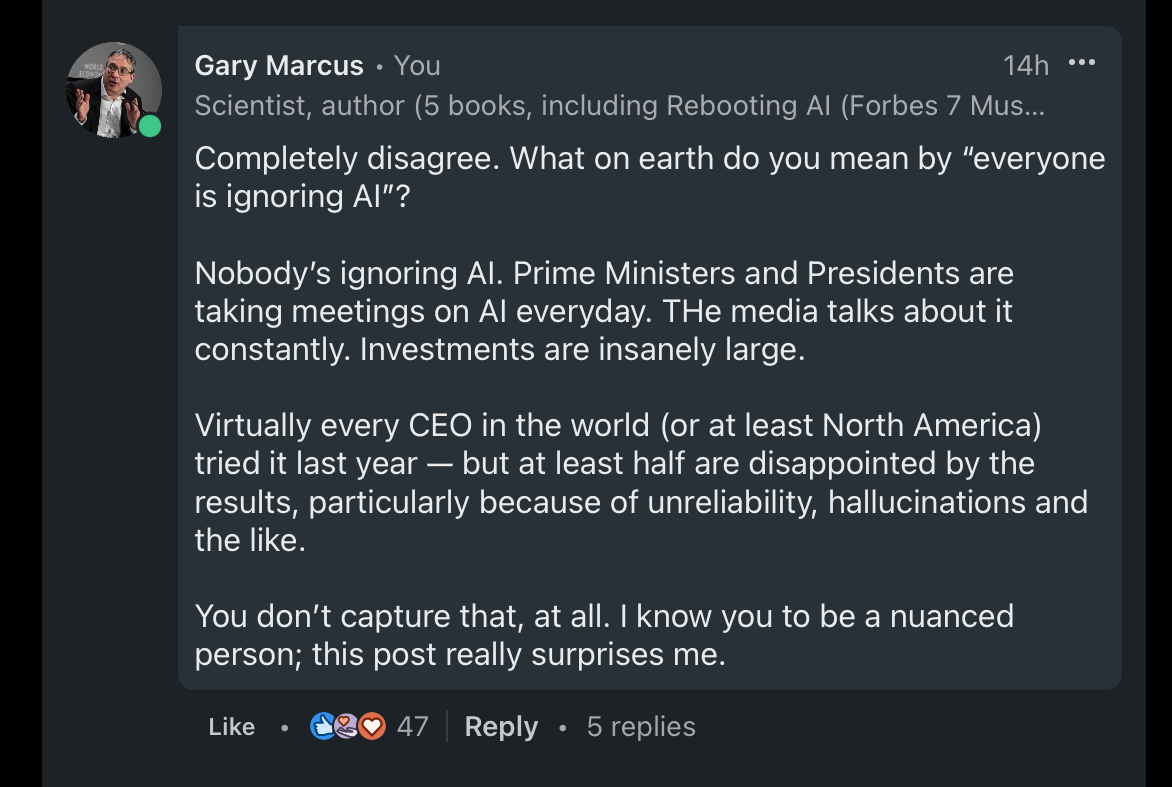Here is a typical bit of wildly popular influencer hype, laced with FOMO and spreading FUD, that I saw yesterday. People in LinkedIn ate it up:
I meanwhile couldn’t believe that someone well-known would post that.
AI ignored? I dashed off a quick reply: practically everyone has tried it, but they are not always satisfied with the results.
§
That was yesterday, and admittedly a bit anecdotal (though still better than the original post, which gave no data at all).
This morning I read a pair of stunning statistics from a new CNBC poll, quite relevant, from the CNBC Technology Executive Council that was held in October, that fully bear out my reply to Kozyrkov:
79% of survey correspondents said they had tried Microsoft Copilot. That’s tremendous, given how new the product is (and a clear refutation of any “people are ignoring AI” narrative).
But only 25% of the correspondents thought it was worth it. (Another quarter said the modest $30/month cost was not worth it, and the remaining half said it was too soon to tell.)
People aren’t ignoring GenAI; they are waiting to see if it will work.
Gary Marcus is author of Taming Silicon Valley, which aims to part to allow readers and government leaders to see through the hype.





The suffocating hype is a major source of my skepticism. Stop telling me how great it is, and start giving me concrete and measurable examples. Not examples that fall apart with the tiniest bit of scrutiny. The Information had a post a few days ago about using it in sales and instructing it to insert typos so that customers wouldn’t realize it’s AI generated. Tricking people is not how we build trust, and trust is the foundation of so many good things.
I'm also seeing more shrill "AI-good-cause-washing", where genAI is being pushed as the solution to society's various ills. Eric Schmidt's "AI will solve climate crisis" is perhaps the most absurd and high profile example, but I attended a healthcare conference last week where nVidia were pushing their foundation model insta-solutions to the various challenges in the drug discovery industry. This was met by much weary eye rolling from executives for whom this isn't their first such rodeo, but perhaps plays better in the general media. I take all this as signs that things are slowing down worryingly for the world's largest tech companies.